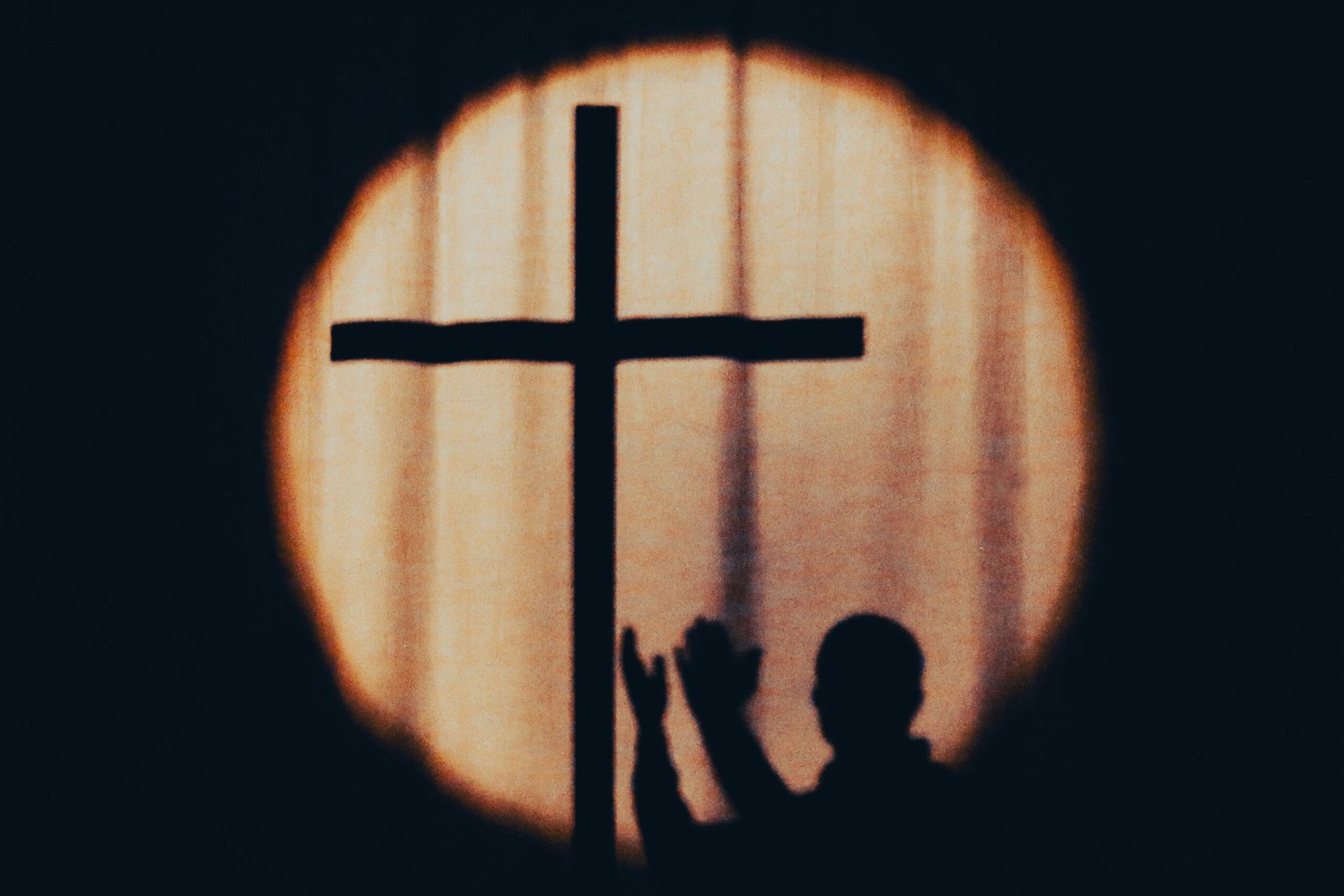
by f. Luis CASASUS,
General Superior of the men’s branch of the Idente missionaries.
New York, June 21, 2020. | XII Sunday in Ordinary Time.
Book of Jeremiah 20:10-13; Letter to the Romans 5:12-15; Saint Matthew 10: 26-33.
For many of us, the mere thought of death can send us quickly towards our most unhelpful distractions and avoidance tactics. In this way, we continue to give it power and perpetuate the notion of death as a taboo topic. Intellectually we may acknowledge our mortality, but deep down, we deny it. The fear of death is so overwhelming that we keep this knowledge unconscious.
Some authors argued that the majority of human actions are undertaken primarily as a means to ignore or evade death. They suggest that fear of death is what motivates us to try leave a lasting legacy behind, to eat vegetables, to remain in positions of authority as long as possible, or going to the gym or the church. In a deeper perspective, the author of the Epistle to the Hebrews states that Jesus died to rescue all of us who live each day in fear of dying (Heb 2: 15). After reflecting on the reality of death and above all on the salvation and freedom we have received through Christ, St. Paul exclaims: Where, O death, is your sting? (1Cor 15:55), because he understood that the fear of death incites us to defend ourselves and to let ourselves be carried away by our pride.
Of course, there are other aspects of dying that we fear, such as disease, disability, and the distress of people who care about us. This explains why Carl R. Rogers said that we can’t possibly be afraid of death, really, we can only be afraid of life.
A mother and her little four-year-old daughter were preparing to retire for the night. The child was afraid of the dark, and the mother, alone with the child, felt fearful also. When the light was out, the child caught a glimpse of the moon outside the window. Mother, she asked, is the moon God’s light? The mother said: Yes, God’s light is always shining. The next question was: Will God blow out His light and go to sleep? And the mother replied: No, my child. God never goes to sleep. Then out of a simplicity of a child’s faith she said that which gave reassurance to the fearful mother: Well, so long as God is awake, I am not afraid.
No wonder Jesus said: Except you become as little children, you shall not enter into the kingdom of heaven. How often we allow fear of darkness, of failure, of suffering, of death, to rob us of our sleep and of our joy in life! God’s light never goes out; He is ever awake to our needs.
But, the positive side of the thinking of death, which has been used by Christianity and other religions to stimulate our compassion, has a practical importance in our prayer life, not to distract us and to look at others with true mercy.
When realize we are dying, and all other human beings are dying with us, and that we all find ourselves on a difficult and strange journey to our heavenly home, we start to have sense of the fragility and preciousness of each moment and our neighbor, and we see more clearly that we are brothers, because we share our fragility and our destiny.
Fear can paralyze and hurt our will, which represents a damage to the freedom to which we are called.
When we examine the lack of prayer in our will, we pay attention to useless or negative desires, which invade us and are often produced by a lack of peace. But we rarely notice the negative effects of fear, which prevents us from embracing what is truly our inner desire and aspiration.
But there’s more. Fear affects and disturbs our intelligence so that fear and faith are mutually exclusives. Fear is the opposite of belief. Believing God eliminates fear. When we believe that God is good and that He is in control of all the events and happenings on earth, the believer is not to fear. He puts his trust in the love and care of God. This appears clearly in today’s First Reading.
Jeremiah lives in a daunting moment in the history of his people. Nebuchadnezzar, The Babylonian king, is ready to take Jerusalem by storm. The army commanders are completely confused and the tension grew and grew. The religious leaders offer empty hopes of peace (Jer 6:14), whereas everything goes bad and catastrophe was at hand.
Jeremiah is young, shy and sensitive, alien to controversy, but he is called to a difficult and risky mission: Get ready for action; stand up and say to them all that I command you… They will fight against you but shall not overcome you, for I am with you to rescue you (Jer 1:17-19).
The priest, Pashur, is captured and carried into exile, where he will die along with those who deceived with lies: he promised peace, while the days of terror were approaching. The enemies (and friends) of Jeremiah mock him and also. plan to killing him. The prophet feels rejected by his people and abandoned by all. At this point, discouragement, uncertainty, despair and even doubt that his vocation was a deception are inevitable and understandable. He unleashes his feeling to the Lord; he shouts to him all his pain, even to the point of cursing the day of his birth (Jer 20:14-18).
Jeremiah accused the people of sin and warned of God’s judgement upon them. He condemned reliance on military pacts rather than on God. Jeremiah was forced into exile but refused to be silenced. But his prayer brings out in him the certainty of God’s faithfulness. And he proclaims: But Yahweh, a mighty warrior, is with me. Now he is sure: God will intervene, will make the truth shine and will make the defender of the just cause triumph.
Our father Founder says that prevention is the essence of prophecy. I understand by this that the Holy Spirit prepares us for moments when we are going to be asked to make a special commitment, not anticipated by us, and therefore more demanding and based on solid faith, not on our calculations.
Every disciple of Christ receives prophetic signs, signals, even if they are incomplete or only half-lit, of what is about to be asked of him, or also of the needs that are to be met near him, in the Church and in the world. One of the elements of our prayer must be indeed to prepare our heart for those moments in the near future.
Here is a story of a sea captain who on his retirement steered a boat taking day trippers to a nearby island. On one trip the boat was full of young people. These young ones laughed at the old captain when they saw him saying a prayer before setting out, because the day was fine. However, they were not long out at sea when a storm suddenly blew up, and the boat began to pitch violently. The terrified passengers came to the captain and asked him to join them in prayer. But he replied: I say my prayers when it is calm. When it is rough, I attend to my ship. The lesson is that if we cannot or will not seek God in quiet moments of our lives, we are not likely to find him when trouble strikes. We have to live like true prophets… and we are given the grace to do so.
Fear of death has a positive and protective function in both animals and humans. But Jesus tells us even more: that we should be truly afraid of the one who can take away from us, from this moment on, the life that is eternal.
In fact, the Second Reading reminds us of the consequence of Adam’s sin and our own sins: Not biological death, which is a natural fact, but the inability to live, chosen by anyone who refuses to follow the footsteps of God. Have we not many times, for fear of being alone, cultivated ambiguous friendships or maintained relations that ended up making us slaves and preventing us from living?
Grace obtained by the obedience of Christ, however, is far superior to the troubles caused by human senselessness. By merit of Christ, God has communicated to all his life. St. Paul stresses the fact that Christ through his death not only conquered sin but poured out divine grace so abundantly and lavishly on mankind, making us his brothers and therefore sons of God, that there is no comparison between the world redeemed by Christ’s death and the world of sin which prevails without Him.
From a practical point of view, zoologists call “security distance” to the space a bird needs to keep between itself and someone approaching its environment. Are we able to use positively the fear to the one who has the power to destroy both soul and body, as Jesus says?
The fear of persecution and the fear of being hurt physically or emotionally are linked to the fear of death.
Jesus says: Are not two sparrows sold for a copper coin? And not one of them falls to the ground apart from your Father’s will. Here is the picture of a sparrow that is wounded, hurt, and it falls to the ground. People used to eat sparrows. They could buy them in any marketplace in Jerusalem. They were very cheap and they were mostly bought and eaten by poor people. But how did these birds get to the market? They were snared or shot with a stone. And of course, in the process of catching them, the sparrows would most likely be hurt.
So the point here is that there is an injury which causes pain and hurt. We are afraid to get hurt, and that is a normal reaction. Here again, Jesus says: ‘Don’t be afraid about that. You have nothing to worry about because my Father loves you.’ God knows all the events and happenings on earth, even to the most minute detail. He knows when a single sparrow falls to the ground. He knows every hair of a person’s head. If God is so concerned for the sparrows that not one falls to the ground without His consent, how much more is He concerned about the most trifling details about each of us who are worth more to Him than sparrows, who are the crown of His creation? God is able to take all the injuries and pain of a believer and work them all out for his good. He can give purpose, meaning and significance to everything that happens to a person.
But let us be clear. The apostle, just like a devoted mother or father, has a more important fear than the fear of what will happen to him/herself. We fear for the ones we love most, our children, our young brothers and sisters, our sick people. Sometimes we think that we are their ultimate protector, but it is just not true. The darkness of this world is simply more powerful than we are. And yet, we are called to lay our fears at the foot of God and bravely march forward. He promises to be a light in the dark, to lead me, to be by my side every step of the way on this perilous journey. I cannot always protect the ones I love, but I can lead them through the dark with confidence, knowing that God is leading me: Cast all your anxiety on him because he cares for you (1Peter 5:7).
Most of times, the apostles will not see the seeds of light and goodness that they have sown with toil and pain germinate. However, they must cultivate the joyful certainty that the harvest will grow and will be plentiful. Their work will not be in vain; though they be put to death, no enemy force will be able to prevent the realization of God’s plan.
We could say that most of our fears are self-absorbed kinds of fear. Those who believe that they are the recipients of a very special grace grow in a paradoxically loving yet joyful fear. Because of the love and joy in God, we tremble with the privilege of being in his presence and of collaborating in his kingdom We are deeply afraid of grieving Him.
You would be quite afraid if someone put a beautiful, priceless, ancient Ming dynasty vase in your hands. You would not be trembling with fear about the vase hurting you but about you hurting it. Of course, we cannot really harm God, but a Christian should be intensely concerned not to grieve or dishonor the one who is so glorious and who did so much for us.
The fear of God is a very special fear, linked to our faculty of union. So special that it is recognized as a true gift of the Holy Spirit.










